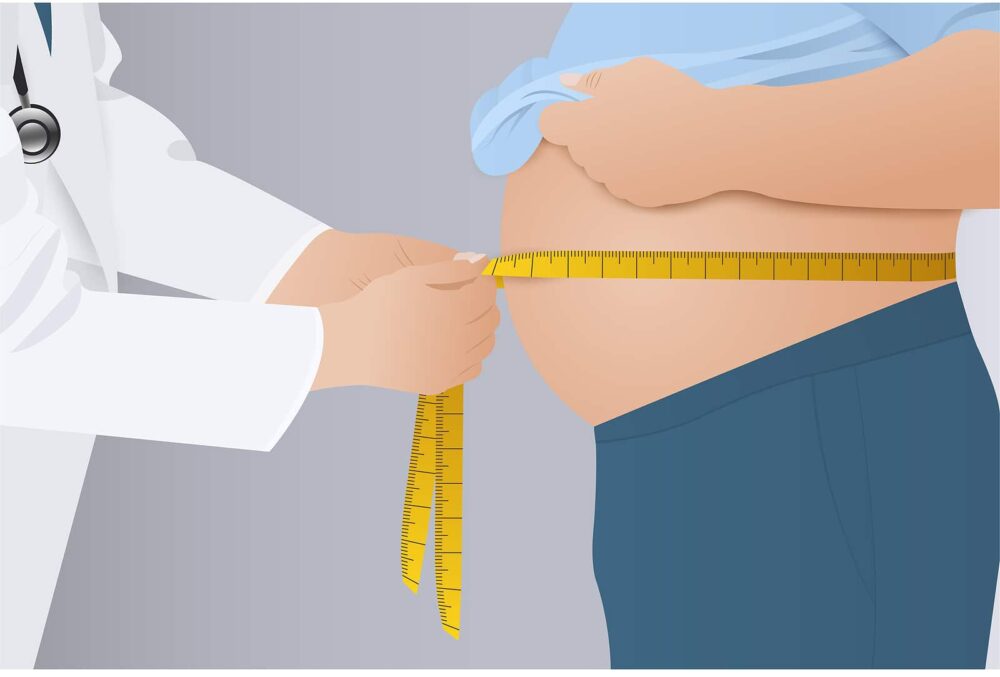 Sleep apnea is often associated with loud snoring, restless nights, and chronic fatigue. However, its effects go much deeper. This question also arises: Can sleep apnea cause weight gain? The answer is yes, and the relationship between the two is more complex than many realize.
Sleep apnea is often associated with loud snoring, restless nights, and chronic fatigue. However, its effects go much deeper. This question also arises: Can sleep apnea cause weight gain? The answer is yes, and the relationship between the two is more complex than many realize.
At Smiles by Lorino, we help patients across New Jersey understand how their oral health, airway, and sleep patterns are interconnected. Weight gain and sleep apnea often form a cycle: excess weight increases the risk of sleep apnea, and untreated sleep apnea can, in turn, make it harder to maintain or lose weight. Breaking this cycle is essential for long-term health and well-being.
Here, we’ll explore how sleep apnea may contribute to weight gain, the underlying causes, and how treatment options at Smiles by Lorino can help improve both sleep quality and overall health.
Understanding Sleep Apnea: Can Sleep Apnea Cause Weight Gain?
Sleep apnea disorder is a condition in which breathing repeatedly stops or becomes very shallow during sleep. The most common type, obstructive sleep apnea (OSA), occurs when the soft tissues in the back of the throat collapse and block the airway.
Common symptoms include:
- Loud, chronic snoring
- Daytime fatigue and drowsiness
- Difficulty concentrating
- Morning headaches
- Dry mouth or sore throat upon waking
While these symptoms may be frustrating on their own, many patients ask, ‘Can Sleep Apnea Cause Weight Gain?’ Sleep apnea also has systemic effects that can disrupt metabolism, hormone regulation, and weight balance.
The 2-Way Relationship Between Sleep Apnea and Weight
One of the most important things to understand is that the connection between sleep apnea and weight gain is bidirectional.
- Excess weight increases the risk of developing OSA. Extra fat deposits around the neck and throat can narrow the airway, making it more likely to collapse during sleep.
- OSA makes weight management more difficult. Poor sleep disrupts the body’s natural processes, which can contribute to unexplained weight gain even without major changes in diet or activity.
This vicious cycle explains why so many people struggle with both conditions simultaneously.
How Sleep Apnea May Cause Weight Gain
So, exactly how does sleep apnea cause weight gain? Here are some of the primary mechanisms at play:
1. Hormonal Imbalances
When sleep is disrupted, the body produces less leptin (the hormone that signals fullness) and more ghrelin (the hormone that triggers hunger). This imbalance makes you feel hungrier than usual, leading to increased food intake, especially cravings for high-calorie or sugary foods.
2. Insulin Resistance
Poor sleep interferes with how the body uses insulin, the hormone that regulates blood sugar. Insulin resistance can increase fat storage and make it harder to lose weight, even when eating a balanced diet.
3. Increased Cortisol Levels
Sleep apnea episodes often cause brief moments of oxygen deprivation, which activate the body’s stress response. This raises cortisol, a hormone linked to fat retention, particularly around the abdominal area.
4. Reduced Energy for Physical Activity
Can sleep apnea make you gain weight by lowering your activity levels? Yes. Daytime fatigue caused by fragmented sleep often leads to decreased motivation to exercise and move throughout the day. Over time, reduced activity adds up to fewer calories burned and greater difficulty maintaining a healthy weight.
5. Metabolic Disruptions
Sleep apnea disrupts the body’s circadian rhythm, which plays a role in metabolism. This disruption can slow calorie burning and contribute to weight gain, even when food intake remains stable.
Can Sleep Apnea Lead to Unexplained Weight Gain?
Many patients report gaining weight even though their diet or lifestyle hasn’t changed. This can feel confusing and frustrating. Can sleep apnea cause weight gain? If sleep apnea is present, the explanation often lies in the body’s hormonal and metabolic shifts.
This makes early diagnosis and treatment crucial. Addressing sleep apnea not only improves nightly rest but also supports weight management and long-term health.
Breaking the Cycle: Your Sleep Apnea Treatment Options
If you’ve been wondering, “Does sleep apnea cause weight gain?” The good news is that effective treatment can help reverse these effects. At Smiles by Lorino, we offer solutions designed to improve breathing during sleep and reduce apnea episodes.
Oral Appliance Therapy
Our office provides custom oral appliances that reposition the jaw and tongue to keep the airway open while you sleep. Can sleep apnea cause weight gain? These devices offer a comfortable alternative to CPAP machines for many patients, particularly those with mild to moderate sleep apnea, and can help reduce weight-related complications associated with the condition.
Lifestyle Support
While oral appliances address the airway, we also encourage patients to:
- Maintain a consistent sleep schedule
- Incorporate moderate exercise
- Follow balanced nutrition
- Manage stress through relaxation techniques
These changes work hand in hand with professional treatment to improve outcomes.
Long-Term Benefits
When sleep apnea is treated, many patients notice not only better energy levels and improved concentration, but also:
- Reduced appetite fluctuations
- More stable blood sugar levels
- Improved ability to lose or maintain weight
- Better cardiovascular health
In short, addressing sleep apnea helps break the cycle of fatigue and weight gain, setting you on a path toward healthier living.
Why Choose Smiles by Lorino for Sleep Apnea Treatment?
At Smiles by Lorino, we take a comprehensive approach to patient care. With locations across northern New Jersey, our practice combines orthodontic expertise with proven sleep apnea treatments.
Here’s why patients trust us:
- Specialized training in orthodontics and airway management
- Personalized oral appliances designed for maximum comfort and effectiveness
- Compassionate care that focuses on long-term health, not just symptom relief
By choosing our team, you gain access to a supportive environment where your sleep, weight, and overall wellness are taken seriously.
Frequently Asked Questions
1. Can sleep apnea cause unexplained weight gain?
Yes. Many patients experience weight gain due to hormonal imbalances, fatigue, and metabolic disruptions linked to untreated sleep apnea.
2. If I lose weight, will my sleep apnea go away?
Weight loss can reduce the severity of sleep apnea and sometimes eliminate symptoms, but treatment may still be necessary. Oral appliances or other therapies often remain beneficial even after weight loss.
3. Can sleep apnea make it harder to lose weight?
Absolutely. Disrupted sleep affects hormones and energy levels, making it harder to stick to healthy eating and exercise routines.
4. What treatment options are available at Smiles by Lorino?
We specialize in oral appliance therapy, a comfortable alternative to CPAP machines, and provide guidance on lifestyle changes to support overall health.
5. How do I know if I have sleep apnea?
Common signs include loud snoring, waking up gasping for air, excessive daytime fatigue, and morning headaches. A sleep study may be recommended for an accurate diagnosis.
Take the First Step Toward Better Sleep and a Healthier You
So, can sleep apnea cause weight gain? Yes, and the link is stronger than many realize. By disrupting sleep, altering hormones, and lowering energy, sleep apnea can contribute to both gradual and unexplained weight gain.
At Smiles by Lorino, we help patients improve their sleep, restore balance, and regain control over their health. If you’ve been struggling with sleep apnea and its effects, it’s time to take the first step. Schedule a consultation with us today, because better sleep leads to better health.



